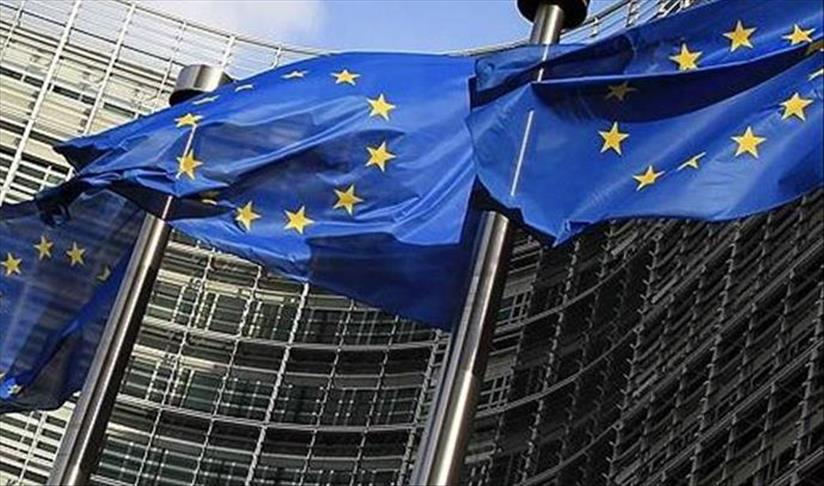EU could sanction Egypt over student's death: Experts
Row between Cairo, Rome over Italian student's death could eventually lead to EU sanctions on Egypt, experts warn

Egypt
By Hussein Mahmoud
CAIRO
Two Egyptian experts say that Italy may bring the high-profile case of an Italian doctoral student who was found murdered in Cairo before the European Parliament with a view to having sanctions imposed on Egypt.
Egyptian legal researcher Ahmed Mefreh said the Giulio Regeni murder case could lead to Egyptian individuals suspected of involvement being summoned by Interpol and official complaints against the Egyptian regime being submitted to international bodies.
According to the Italian embassy in Cairo, Regeni, 28, came to Cairo last September to work on his doctoral thesis on the Egyptian economy.
He disappeared on Jan. 25 in Cairo’s Dokki district before his body was found -- bearing signs of torture -- several days later.
Speaking to Anadolu Agency, Mefreh said Italy’s recent decision to recall its ambassador in Cairo was proof that negotiations with Egypt -- which took place on Thursday and Friday -- had failed.
"Italian investigation authorities have two options. The first is to continue investigations and submit the information they have to the Italian judiciary," Mefreh said.
The second option, according to Mefreh, would be "to halt the investigation until new information emerges".
In the latter case, he said, Italian investigators would provide all information currently at their disposal -- both what they have learned through the media and what has been found by Italian investigators who visited Egypt -- to the Italian judiciary.
"This would give the Italian authorities the right to widen the circle of suspicion to include more suspects, with the possibility of eventually proving them guilty," said Mefreh. "In this case, the Italian judiciary could file a request to have these suspects detained."
If the Egyptian government failed to surrender the accused individuals to the Italian authorities, Mefreh added, the latter could bring the case before the European Union and Interpol.
- 'Lockerbie scenario'
Said Sadek, a political sociology professor at the American University in Cairo, told Anadolu Agency that Egypt could -- in the event that it failed to surrender the suspects -- end up with a "Lockerbie scenario".
The Lockerbie case involved a U.S. passenger plane that went down over the Scottish village of Lockerbie in 1988.
Three years later, an arrest order was issued in the U.S. and Britain for two Libyans suspected of bombing the plane.
Libya, however, refused the request and launched its own investigation, detaining the two suspects and asking both countries to provide what evidence it had against them.
The case ultimately ended up with sanctions being imposed on Libya.
"Italy’s decision to recall its ambassador in Cairo is a diplomatic escalation intended to express displeasure about the lack of progress in the Egyptian investigation and appease Italian public opinion -- and also to put pressure on Egypt," Sadek said. "It could eventually lead to diplomatic relations being cut."
A second scenario is that the case may be raised at the European Parliament, after which foreign ministers from EU member states could impose sanctions on Egypt.
On March 9, the European Parliament issued an urgent statement in which it advised member states to cut aid to Egypt due to perceived Egyptian stonewalling in the Regeni case.
- Envoy recalled
On Saturday, Italy officially notified Egypt that it had recalled its ambassador for "consultations", an Egyptian Foreign Ministry spokesman said.
According to a statement issued by the Italian Foreign Ministry, Ambassador Maurizio Massari was summoned to Rome to discuss the Regeni case.
The decision was taken after Egyptian and Italian prosecutors had discussed the matter in Rome, the statement added, going on to call for "an urgent evaluation" in order to "find the truth about the barbaric Regeni murder."
Italy’s official ANSA news agency reported that Italian officials had found information provided by the Egyptian authorities to be "insufficient" and that the Italian side had left the meeting dissatisfied.
Regeni vanished on Jan. 25 -- the fifth anniversary of a popular uprising that forced autocratic President Hosni Mubarak to step down after 30 years in power.
At the time of Regeni’s disappearance, Egypt's sprawling security apparatus had been on high alert to prevent the eruption of any demonstrations marking the anniversary.
On Feb. 3, the student’s dead body -- bearing signs of extreme abuse and torture -- was found in a ditch on Cairo’s outskirts.
While the Egyptian authorities deny any involvement, informed observers say the signs of torture on the young man’s body were similar to those associated with Egyptian police torture.








